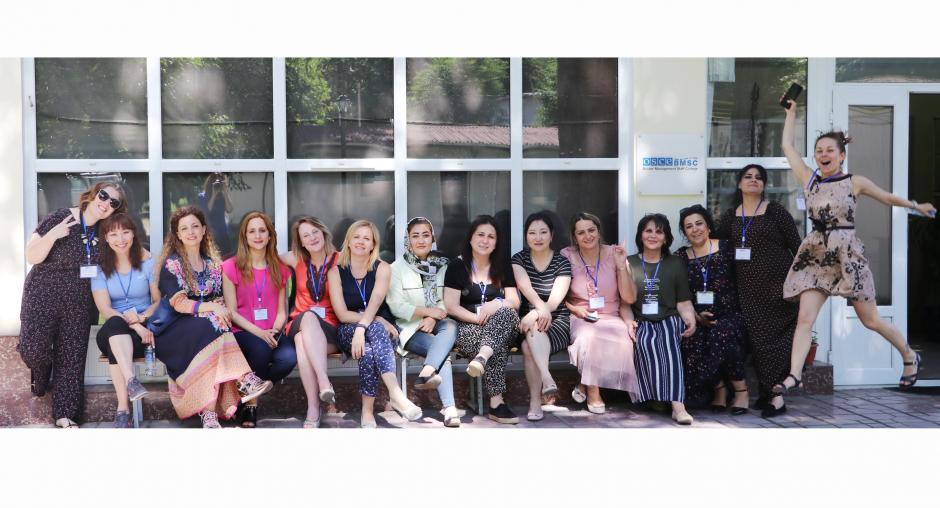OSCE Border Management Staff College concludes sixth staff course for women leaders

Twenty-four female leaders from the border security and management sector graduated from a staff course at the OSCE Border Management Staff College (BMSC) on 28 June 2019 in Dushanbe, Tajikistan. It was the sixth course designed and delivered specifically for female leaders by the College since its inception a decade ago.
This four-week capacity building course for mid and senior level officials of diverse agencies involved in all aspects of border security and management follows a curriculum designed to respond to the needs of the OSCE participating States and Partners for Co-operation as they strive to meet their commitments to ensure open yet secure borders in the region, as embodied in numerous OSCE decisions, as well as in other regional and universal instruments.
The College is committed to promoting and applying gender equality by focusing on female border management and security officials. Staff courses for women leaders have a distinct added value in supporting the empowerment of women working in the respective field.
Jonathan Holland, Director of the BMSC, said: “We put on this all-female course, specifically to redress the imbalance in gender in the border security profession. At the moment it’s a largely male-dominated profession.”
Holland further stated that today, many countries are taking steps to amend this issue and the effect of a more gender-balanced approach to border security can be observed at the College with the increase of the number of female participants over the past six years.
Representatives of customs, border, drug control, financial police and training institutes from 16 different countries – Afghanistan, Armenia, Australia, Bosnia and Herzegovina, Belarus, Estonia, Georgia, Italy, Kyrgyzstan, Lithuania, Moldova, Mongolia, Poland, Tajikistan, Tunisia and Ukraine – participated in the BMSC staff course.
Aleksandra Jędryka, a graduate of the course, noted that the content of the course was very diverse and she could find something relevant to her job in every topic covered: “The eclectic approach of the course is its greatest asset. Everybody can learn more about the topic of their interest, while at the same time receiving information on related good practices utilized by other agencies in a multitude of different countries”.
Topics covered during the course included the promotion of border security and management in the OSCE area, border security and management models, elements of border control and co-operation, as well as gender, economic, environmental and human aspects of border security. In-class activities were complemented by two study visits to Tajik border crossing points on the borders with Uzbekistan and Afghanistan.
A roundtable discussion on countering trafficking in human beings in the context of border security and management was conducted in the framework of the course. The event brought together subject area experts, representatives of diplomatic missions and international organizations, and participants of the staff course.
